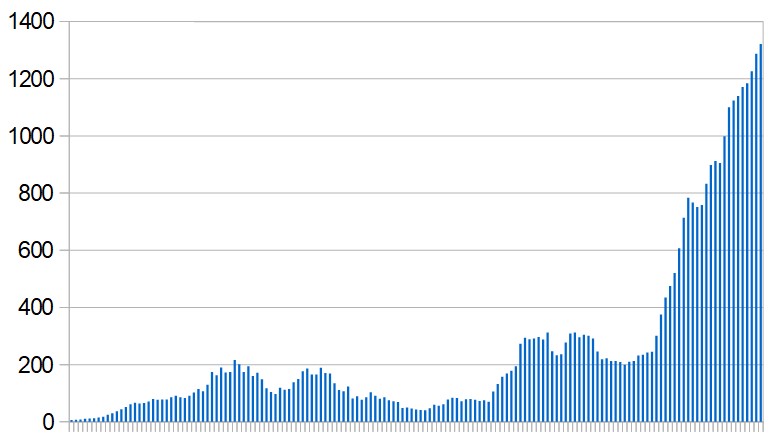 |
Coronavirus infections have been rising sharply in Morocco over the last few weeks, with a record 1,776 new cases reported on Sunday.
This is a major setback for the North African country which, for a while, had come close to bringing the virus under control. By early June its strict lockdown had reduced new cases to around 40 a day but since then something has clearly gone wrong.
Local health experts attribute this reversal mainly to the "rushed" way that restrictions were lifted.
Writing for Maroc Hebdo, Anass Doukkali – a former health minister – says that while the lockdown phase was "more or less well managed", the lifting of restrictions was marred by "incoherent communication, confused messaging ... and some decisions that were hasty and poorly explained". As a result, the public began paying less attention to what the government was saying.
As might be expected, most of the confirmed infections are concentrated in cities. Among the new cases reported yesterday, 209 were in Marrakesh, 192 in Casablanca, 150 in Beni Mellal, 74 in Tangier and 63 in Fes.
No less alarming, though, is the large number of much smaller outbreaks scattered around the country which could grow rapidly if not monitored closely. Containing these depends heavily on the effectiveness of contact-tracing – which is being hampered by delays in testing. Once someone has been diagnosed with Covid-19, it usually takes a week or more to trace all their contacts – by which time the virus may have spread further.
According to Meziane Bellafkih, head of epidemiology at the health ministry, people can wait four days to get tested and four more days for the results.
Delays in testing are also being blamed for causing avoidable deaths, because people with serious symptoms are often not receiving treatment until it is too late.
At the Ibn Rochd Hospital in Casablanca deaths now average 24 a day compared with only 11 a few weeks ago. According to El Houssein Baro, a department head at the hospital, most patients are in "a desperate situation" when they arrive and more than 20% die very soon after admission.
Further information:

 RSS Feed
RSS Feed
